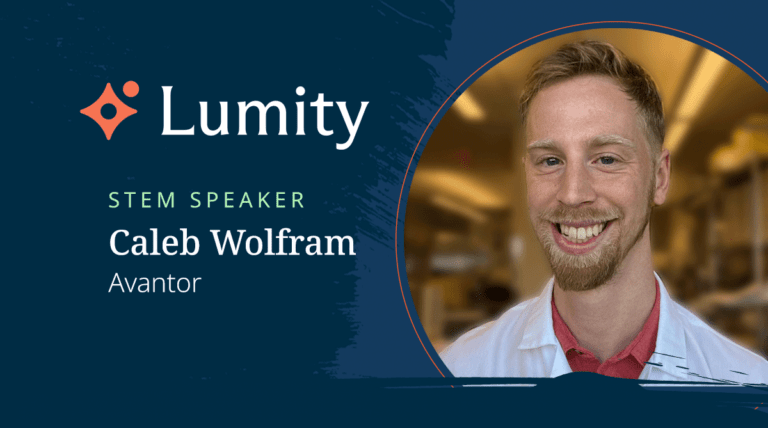“Science is for everyone”
“It doesn’t matter where you come from or how good you are in chemistry in high school. If you are interested in science, you should pursue it. People in science don’t really talk about their career paths, but we each had a different way of getting where we are,” says Avantor’s Caleb Wolfram.
Caleb is a Lumity STEM Talk volunteer and certified histotechnologist, which, as he describes, is the “middle person between the doctor and the diagnosis after the tissue is taken in a biopsy.” This past year, Caleb spoke virtually to three Lumity classes all the way from his home in Philadelphia. Needless to say, the kids were amazed by his job, and we were amazed by his dedication to our kids from across the country.
“I view myself as a global citizen because what I do here affects people across the world,” Caleb explains. “I was always involved in my local community, and view the kids in Chicago as important as the kids here. All kids need support in figuring out their interests and what they want to do—and they need to understand it all takes time.”
“In my STEM Talks, I try to highlight that when I graduated from high school I thought I would do one thing and then I ended up on a different path,” Caleb continues. “Too often kids think that the path they are on in 10th grade is their only path and, somehow, science isn’t for them. Even students who are interested in science don’t think they will feel comfortable in a science career or that people in the sciences will understand who they are. But people in science are finally realizing they are missing out on entire populations and talent.”
While Caleb is now a scientist with a B.A. in microbiology from West Chester University, his life after high school wasn’t easy. Recently after he graduated, he became homeless and faced food insecurity. “I know kids in Chicago face those same issues and that 95% of people don’t know that unaccompanied homeless youth do go to college. When I share my story with Lumity students, I want them to know there are resources out there to help them go to college, go into science fields, and be successful; they just need to ask. Students need to be reassured that they can ask for help and that it is ok.”
